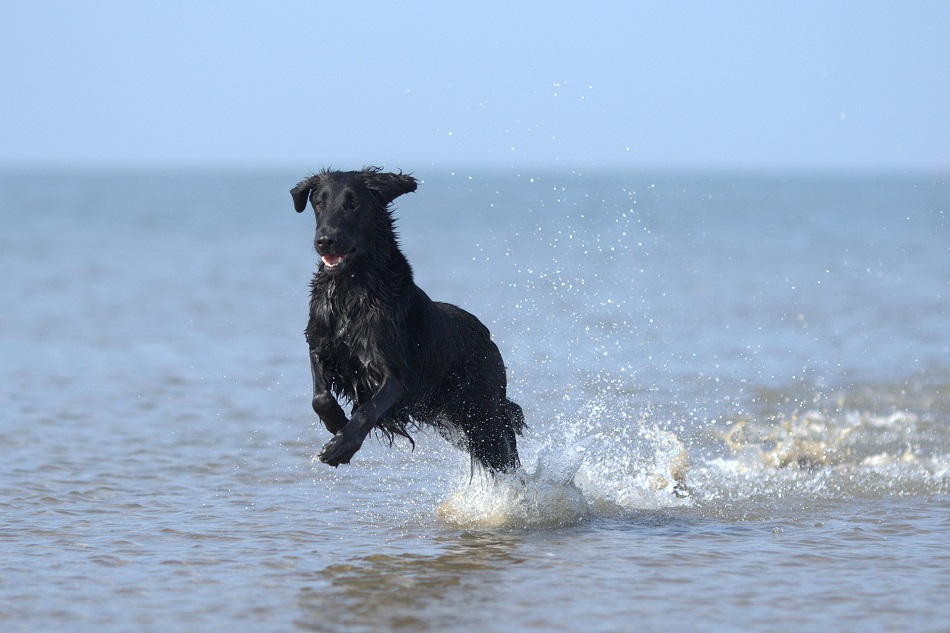June is here – which means fun in the sun and relaxing days near the water. If your four-legged family member is joining you at the beach, relaxing by a pond, or cruising the waterways on a boat, make sure you know how to keep them safe.
Not All Dogs Were Born to Swim
While many pups love the water and chasing waves, certain dogs are not equipped for swimming.
Pet owners with flat-faced dogs, like Pugs or French Bulldogs, need to be extra careful around water. Besides their short snouts, their big chests are top-heavy, so they can become tired quite quickly from trying to stay afloat.
Puppies may be able to “doggie paddle,” but they do not know how to properly swim without your help. New pet parents must teach their young dog how to swim in a shallow, safe environment. If you have a pool at home, make sure you also show them where the pool steps are located as soon as possible. Knowing how to reach safety will help keep them calm if they accidentally fall into the pool, no matter their age.
Saltwater Can Be Lethal to Pets
Before taking your pet around any saltwater, it’s critical to understand the dangers and warning signs of saltwater poisoning.
A dog’s body is just like a human’s body – it needs to regulate the amount of sodium in the system. When there’s too much of it, cells cannot hold as much water. In severe cases, too much salt in the body can become poisonous – and can lead to a fatal outcome.
Symptoms of saltwater poisoning include:
– Increased thirst
– Excessive urination
– Vomiting
– Diarrhea
– Weakness or lethargy
– Confusion or disorientation
– Seizures
If your pet experiences any of these symptoms within 48 hours of being in saltwater, contact the 24/7 emergency care team at AEHV immediately. Time is of the essence!
Enjoy the Surf with Your Pet
A day on the beach is wonderful – and even better when pets can come along for fun. While enjoying the beach with your pet, remember these essential items:
– Watch out for strong currents and riptides
– Keep your pet away from washed-up fish, Portuguese man o’ wars, and other marine life. While they may smell and look interesting, they can be dangerous.
– Bring fresh water for your pet so they can avoid drinking ocean water
Cruise the Waterways with Your Pet in a Safe Manner
Dogs, boats, and our many waterways are a fun combination, but bringing pets on a boat requires extra safety precautions. Always keep these things in mind before boarding your vessel:
– Make sure your pet knows how to get on and off the boat safely. Any wrong movements can lead to an injury or drowning.
– Pack the water bowl and freshwater just like you would for a day at the beach. This will help keep your furry friend hydrated and discourages them from drinking the brackish, semi-salt water found in the Halifax River.
– Never leave your pet’s life jacket at home. Even the best swimmers can tire easily if the water is rough or an accident occurs.
– Watch your pet around all fishing gear. String and hooks can cause several injuries, many that require emergency surgery and critical care.
Allow Your Furry Friend to Relax at Local Ponds and Springs
While Floridians spend lots of time near saltwater, there are many fresh bodies of water to enjoy in our area. Keep these tips in mind when around freshwater:
– Avoid water with blue-green algae. These toxic algae can make you and your pet quite sick.
– Look around the pond for alligators. June marks the end of the mating season and the start of egg-laying season, so alligators are active and visible.
– Check all rules and regulations before visiting a natural spring or park. Florida’s beloved manatees are well-known to visit these bodies of water, and pets are not allowed to swim around these protected marine mammals.
AEHV Offers Emergency Care 24/7/365
Animal Emergency Hospital Volusia is open 24 hours a day, 365 days a year. We are located at 696 South Yonge St. (US 1) in Ormond Beach. We welcome your call anytime, day or night, at (386) 252-0206.

